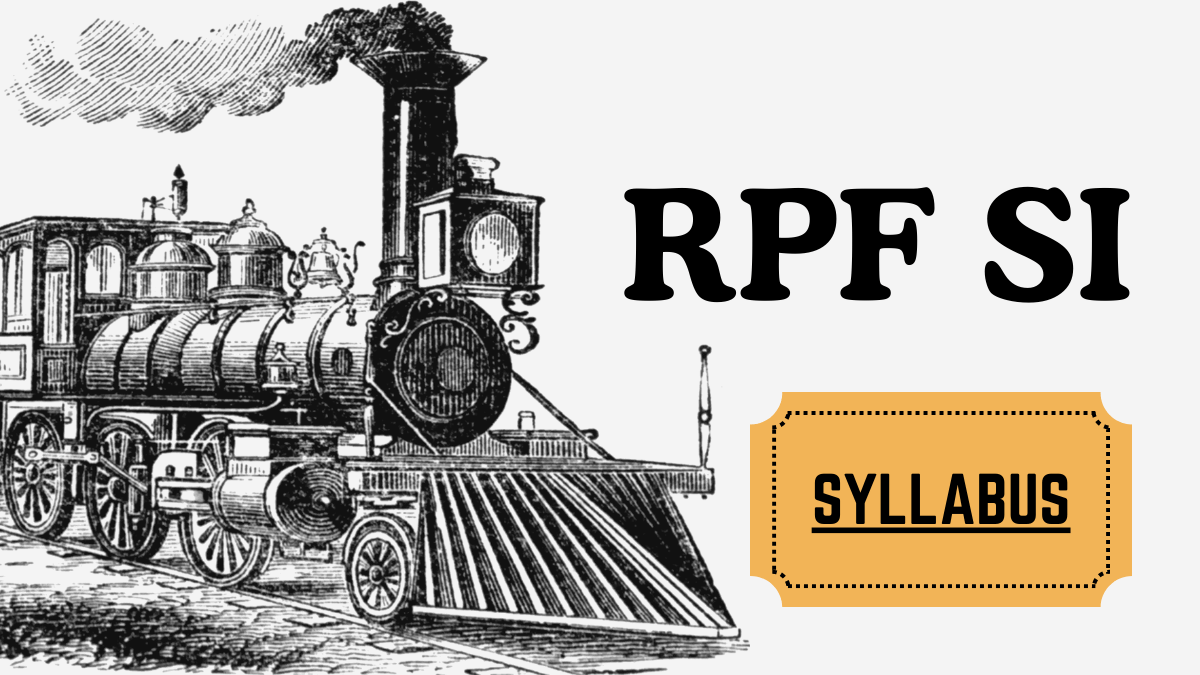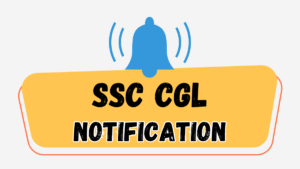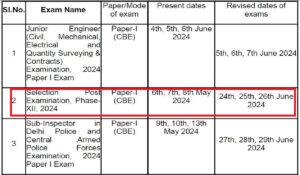The Railway Protection Force or RPF has given a comprehensive RPF SI Syllabus for candidates to refer to while preparing to become future Sub-Inspectors in the Indian Railways. There is only one stage of online examination in the form of a Computer-Based Test (CBT). Therefore, it is necessary to cover every topic of the RPF SI Syllabus to clear this examination.
The following subjects included in RPF SI 2024 Syllabus are discussed in detail in this article:
- Arithmetic
- General Awareness
- General Intelligence and Reasoning
RPF SI Recruitment Process 2024
The official notification by the RPF divides the complete recruitment process into three important stages. These are:
- Computer Based Test (CBT)
- Physical Efficiency Test (PET)/Physical Measurement Test (PMT)
- Document Verification (DV)
Candidates need to qualify in each stage of the selection process mentioned above. Particularly, the first stage i.e. CBT will play a crucial role in determining the merit and rank of the candidates thereby influencing the chances of selection and place of posting.
RPF SI Exam Pattern 2024
The RPF SI Exam will be conducted in 90 minutes only. There will be a total of 120 questions carrying 1 mark each. Candidates must attempt the exam with both speed and accuracy as there will be negative marking. 1/3rd of the marks will be deducted for each wrong answer and can play a major role in changing the rank. Additionally, there will be normalization to accommodate the change in exam level across different shifts.
- RPF SI Exam Duration: 90 Minutes
- Total Number of Questions: 120
- Question Type: Objective (MCQs)
- Maximum Marks: 120
- Negative Marking: 1/3rd mark
- Normalization: Yes
- Number of Subjects: 3
| RPF SI Exam Pattern 2024 | |
| Subject | Marks/Questions |
| Arithmetic | 35 |
| General Awareness | 50 |
| General Intelligence and Reasoning | 35 |
| Total Marks/Questions | 120 |
Minimum Qualifying Marks in the RPF SI Exam
Candidates must secure a minimum percentage to pass the RPF SI CBT. This is to ensure that the overall cut-off for respective categories will be higher than the minimum qualifying marks mentioned below.
- UR, EWS, and OBC NCL: 35%
- SC and ST: 30%
RPF SI Syllabus 2024
Candidates are tested on a range of topics mentioned in the RPF SI Syllabus across three different subjects i.e. Arithmetic, General Awareness, and General Intelligence and Reasoning. Topic-wise syllabus for RPF SI is mentioned below. Read through each of these and note down the topics you find difficult. Prepare your strategy accordingly to succeed in the RPF SI Exam.
RPF SI Syllabus for Arithmetic
The Maths section of the RPF SI Syllabus contains only the arithmetic part. Candidates need not study advanced math topics for this exam. The Arithmetic syllabus for RPF SI is given below for your reference.
- Questions on Number System
- Whole Numbers
- Decimal & Fractions
- Relationship between numbers
- Fundamental arithmetical operations
- Percentages
- Ratio & Proportion
- Averages
- Interest
- Profit and Loss
- Discount
- Tables and Graphs
- Mensuration
- Time and Distance
RPF SI Syllabus for General Awareness
This is a section with the most weightage in the RPF SI Syllabus. Candidates require a general understanding of various General Awareness and Current Affairs related topics. The notification mentions the following topics to prepare for General Awareness.
- General awareness of the surrounding environment and its application to society
- Current events
- Matters of everyday observation and experience for an education individual
- Indian History
- Art and Culture
- Geography
- Economics
- General Polity
- Indian Constitution
- Sports
- General Science
RPF SI Syllabus for General Intelligence and Reasoning
One of the easiest and scoring parts of the RPF SI Exam is General Intelligence and Reasoning. Candidates can go through the following syllabus for the reasoning section.
- Questions on Analogies
- Similarities and Differences
- Spatial Visualization
- Spatial Orientation
- Problem-Solving
- Analysis
- Judgement
- Decision Making
- Visual Memory
- Discriminating Observation
- Relationship Concepts
- Arithmetical Reasoning
- Verbal and Figure Classification
- Arithmetic Number Series
- Non-verbal Series
- Coding and Decoding
- Statement and Conclusion
- Syllogistic Reasoning






Leave a Reply